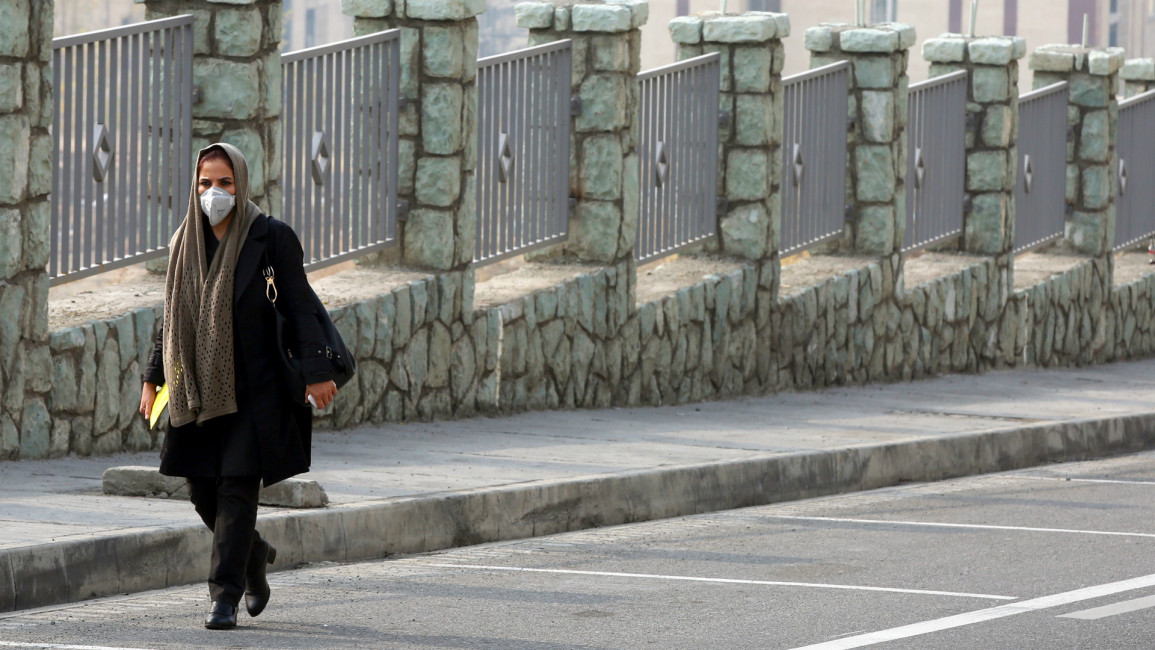Bootleg booze touted as 'corona cure' kills dozens in Iran
The outbreak of the virus in Islamic republic is one of the deadliest outside of China, where the disease originated.
Twenty have died in the southwestern province of Khuzestan and seven in the northern region of Alborz after consuming bootleg alcohol, IRNA said.
Local media regularly report on lethal cases of poisoning caused by bootleg liquor.
Read also: Outrage after Israeli rabbi claims God sent coronavirus as punishment for homosexuality
A spokesman for Jundishapur medical university in Ahvaz, the capital of Khuzestan, said 218 people had been hospitalised there after being poisoned.
The poisonings were caused by "rumours that drinking alcohol can be effective in treating coronavirus", Ali Ehsanpour said.
Twitter Post
|
The deputy prosecutor of Alborz, Mohammad Aghayari, told IRNA the dead had drunk methanol after being "misled by content online, thinking they were fighting coronavirus and curing it."
If ingested in large quantities, methanol can cause blindness, liver damage and death.
Alcohol consumption in the Islamic Republic is banned since the Iranian revolution in 1979, although smuggling and a bootleg alcohol trade has become rampant in the country.
Muslims are banned from consuming alcohol and those who are arrested can receive prison sentences as well as public flogging.
Last year, an Iranian politician and activist urged the government to reconsider its ban on alcohol, saying the strict restrictions are costing lives.
Mostafa Tajzadeh, a former official who served time in prison for his political views, asked in a tweet the government to reconsider the ban, urging it to save the lives of its citizens.
Tajzadeh's comments came following a remarkable hike of alcohol poisoning incidents in the country.
In October 2018, the Iranian health ministry said that 84 people died after drinking contaminated bootleg alcohol.
"Some have been arrested in this regard and people should know that even alcohol packed and sealed in foreign packages can easily be fake," Iraj Harirchi, ministry's spokesman, said in response to the spate of deaths.
Harirchi also confirmed that 959 people were treated for poisoning, with 305 more hospitalised with kidney damage and 27 suffering eye damage.
Tajzadeh said that people will go blind or into comas before the Islamic Republic realises that the ban is not efficient.
Rising death toll
Iran has been scrambling to contain the spread of the COVID-19 illness which has hit all of the country's 31 provinces, killing 237 people and infecting 7,161.
According to IRNA, 16 out of 69 confirmed cases have died of coronavirus infection in Khuzestan as of Sunday.
With 1,945 cases, the capital Tehran remains the province with the most cases, according to the official.
The second worst-hit province with 712 confirmed cases is Qom, the Shia pilgrimage city south of Tehran, where the Islamic Republic's first cases were reported.
The number of cases of novel coronavirus worldwide has crossed 110,000 people in 100 countries and territories with more than 3,800 dead.
China, where the virus first emerged late last year, remains the most affected country with more than 80,000 cases, but experts have expressed hope that the Chinese outbreak has peaked.
Governments are scrambling to respond to the outbreak with countries across the Middle East, cancelling public gatherings, restricting attendances at sporting events and closing schools.
Many of Iran's neighbours have imposed restrictions on travel to and from the Islamic Republic.
On Monday, Qatar became the latest country to announce a nationwide closure of schools and universities from 10 March, following similar steps taken by other Gulf states.
The ministry also announced a ban on travellers from 14 countries, including Bangladesh, China, Egypt, India, Iran, Iraq, Lebanon, Nepal, Pakistan, the Philippines, South Korea, Sri Lanka, Syria and Thailand.
Follow us on Facebook, Twitter and Instagram to stay connected



